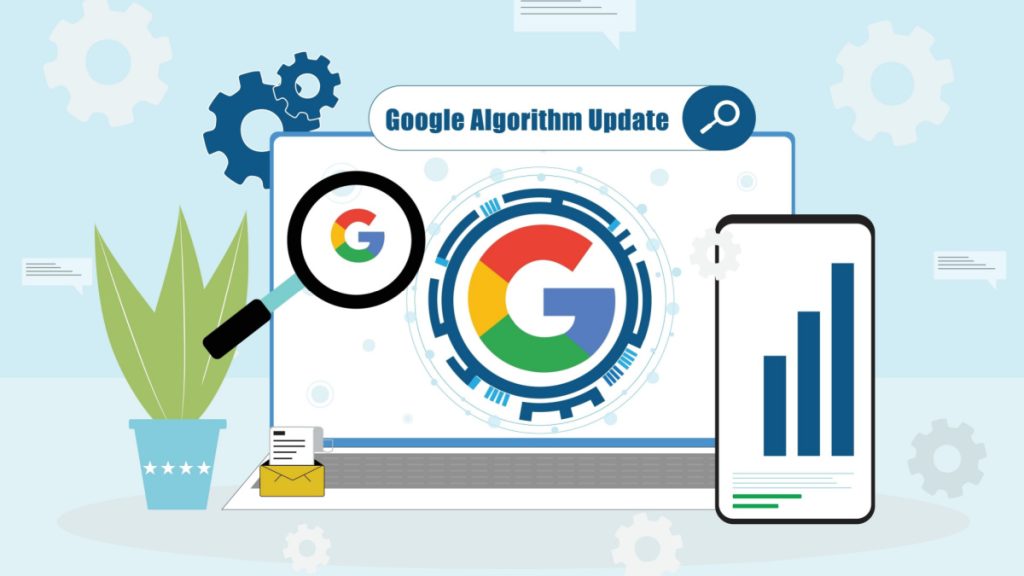
In today’s digital age, knowing how to research effectively online is a vital skill. It’s like having a world of information at your fingertips, but only if you know how to use it. Google, the giant of search engines, is a key tool in this quest.
Mastering Google search is more than just typing in a question. It’s about unlocking a treasure trove of information quickly and efficiently.
By refining your Google search skills, you can save time and access a broader range of resources. This makes your research not just faster, but also more comprehensive. Let’s dive into how you can make the most of your Google searches.
Understand Google’s Algorithms
Google’s search algorithms are like the brain behind your search results. They quickly analyze your query and match it with relevant information from the web. Understanding these algorithms can significantly boost your search efficiency.
These algorithms consider factors like keywords, website authority, and how recent the information is. Just like an essay writer tailors content to a specific topic, Google customizes search results based on these factors.
By grasping how these algorithms work, you can craft your searches more effectively. It’s not just about finding information, but finding the most relevant and reliable information quickly. This knowledge is a key part of becoming an efficient digital researcher.
Use Keywords Effectively
Using the right keywords is crucial in refining your Google searches. Keywords are the main terms that define what you’re looking for, like signposts guiding you to the most relevant information.
Start by identifying the core concept of your search. Be specific; for instance, use ‘Renaissance art techniques’ instead of just ‘art’. Including additional keywords related to your main term can further narrow down the results.
Experiment with different combinations and synonyms to expand your search scope. Remember, the effectiveness of your keywords directly influences the relevance of your search results. Well-chosen keywords can be the difference between finding a needle in a haystack and going straight to the point.
Utilize Advanced Search Techniques
Advanced Google search techniques can significantly sharpen your search results, much like using a fine-tuned instrument. Using quotations is a simple yet powerful method. When you search for a phrase within quotes, like “climate change policies”, Google looks for that exact phrase, providing more precise results.
Boolean operators, such as AND, OR, and NOT, further refine your searches. For example, “global warming OR climate change” expands your search, while “global warming NOT ozone” excludes certain terms.
Filters, accessible under the ‘Tools’ option in Google, allow you to refine results by time, region, or type of content. These techniques work together to sift through the vast ocean of online information, bringing you closer to the most relevant and useful results.
Leverage Google Scholar for Academic Research
Google Scholar is a specialized search engine tailored for academic research. It’s a treasure trove for students and scholars, providing access to scholarly articles, theses, books, and conference papers.
To use Google Scholar effectively, start with precise keywords related to your research topic. This platform allows you to explore a wide range of academic materials. You can also use filters to narrow down results by year, author, or publication.
Another useful feature is citing sources directly from Google Scholar, which can simplify your bibliography process. By leveraging Google Scholar, you access a wealth of academic information, making your research process both deeper and more efficient.
Explore Beyond the First Page of Results
Venturing beyond the first page of Google search results can uncover hidden gems of information. The first page often contains the most popular or SEO-optimized sites, but not necessarily the most in-depth or unique content.
To delve deeper, try modifying your search terms based on the information you find on the initial pages. This iterative process can lead to more nuanced results.
Additionally, explore the ‘Related searches’ at the bottom of the search page for alternative perspectives. Patience is key; often, the most valuable insights are buried a few pages deep, waiting for those willing to look beyond the surface.

Evaluate the Credibility of Sources
Evaluating the credibility and reliability of online sources is as crucial as finding them. Just like seeking out the best paper writing service for quality work, it’s important to scrutinize the sources you find online for their trustworthiness.
Check the author’s credentials and the publication date to ensure the information is current and authoritative. Look at the website’s domain; educational and government sites (.edu and .gov) are generally reliable. Additionally, cross-reference information with other reputable sources. Reliable information is usually supported by evidence and corroborated by other credible sources. Critical evaluation of each source can greatly enhance the quality of your research.
Use Google Search Features and Tools
Google offers a suite of search features and tools that can enhance research efficiency. The ‘Image Search’ is great for visual content, providing a different dimension to your topic. ‘News Search’ filters results to recent articles and current events, keeping you updated.
The ‘People also ask’ section is particularly useful for expanding your understanding of a topic. It shows related questions asked by other users, often uncovering angles you might not have considered.
Using these tools allows you to view your topic from various perspectives and ensures a more comprehensive understanding. They are like different lenses, each offering a unique view of the information landscape.
Balance Speed with Thoroughness
Google offers a suite of search features and tools that can enhance research efficiency. The ‘Image Search’ is great for visual content, providing a different dimension to your topic. ‘News Search’ filters results to recent articles and current events, keeping you updated.
The ‘People also ask’ section is particularly useful for expanding your understanding of a topic. It shows related questions asked by other users, often uncovering angles you might not have considered.
Using these tools allows you to view your topic from various perspectives and ensures a more comprehensive understanding. They are like different lenses, each offering a unique view of the information landscape.
Stay Updated with Research Techniques
Staying updated with the latest Google search features and online research techniques is crucial in the fast-evolving digital landscape. Google continuously updates its algorithms and introduces new tools, which can significantly impact how you find information.
To keep your skills current, follow tech blogs or websites that focus on digital literacy and Google’s updates. Participating in online forums or communities centered around research skills can also provide valuable insights and tips. Additionally, experimenting with new search features as they’re released helps you understand their practical application. Staying informed and adaptable ensures that your research skills remain effective and efficient in the ever-changing digital world.
Conclusion
In conclusion, mastering Google for research involves understanding its algorithms, using keywords effectively, and employing advanced search techniques. Leveraging tools like Google Scholar and exploring beyond the first page are also key. Evaluating source credibility, utilizing various Google features, and balancing speed with thoroughness enhance research efficiency. Staying updated with the latest techniques ensures continued effectiveness. With these strategies, Google transforms from a mere search engine to a powerful tool, enabling you to conduct effective and efficient research in the digital age.
Inside Telecom provides you with an extensive list of content covering all aspects of the tech industry. Keep an eye on our Tech sections to stay informed and up-to-date with our daily articles.